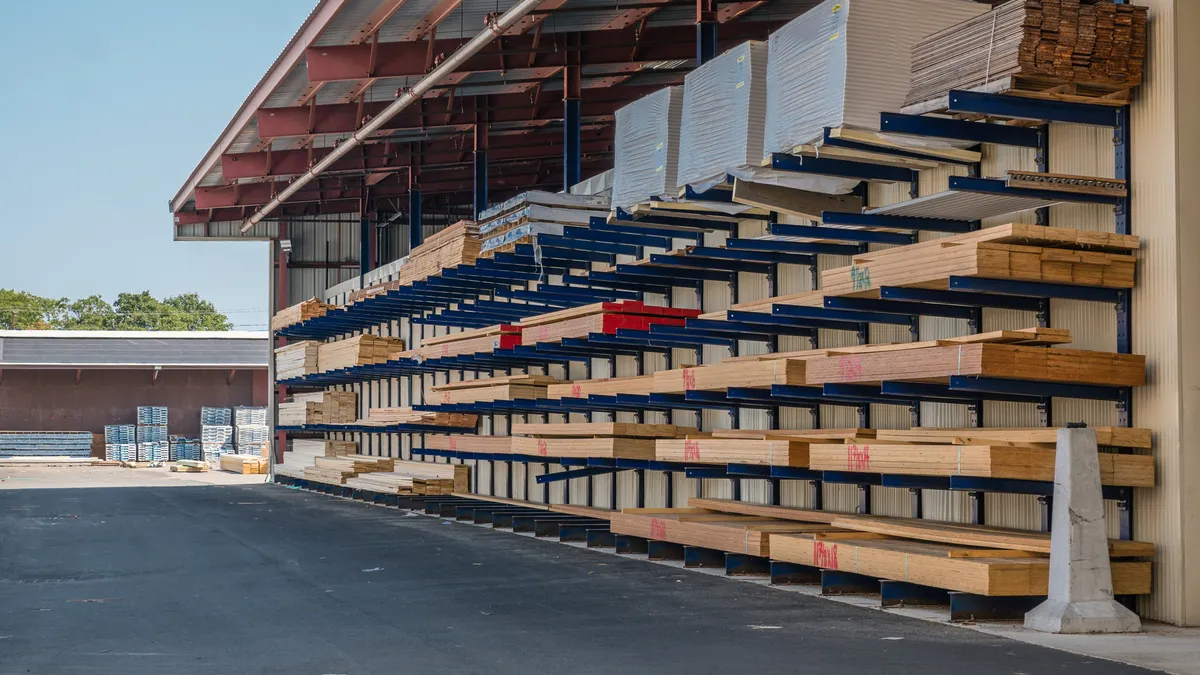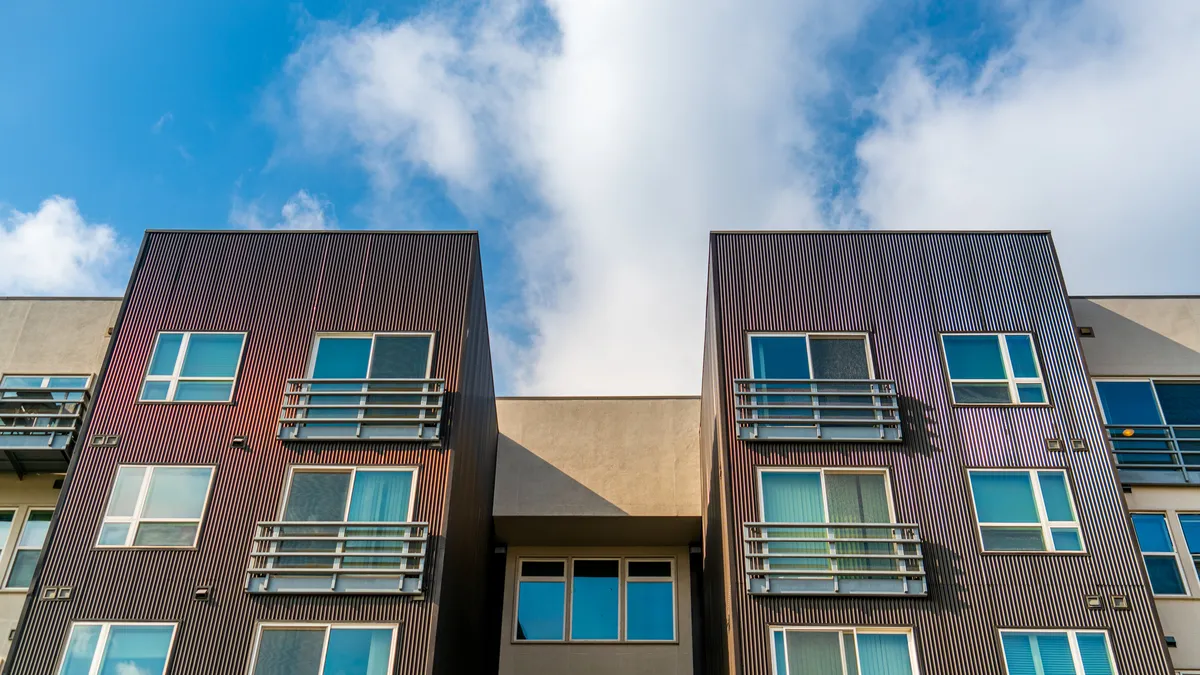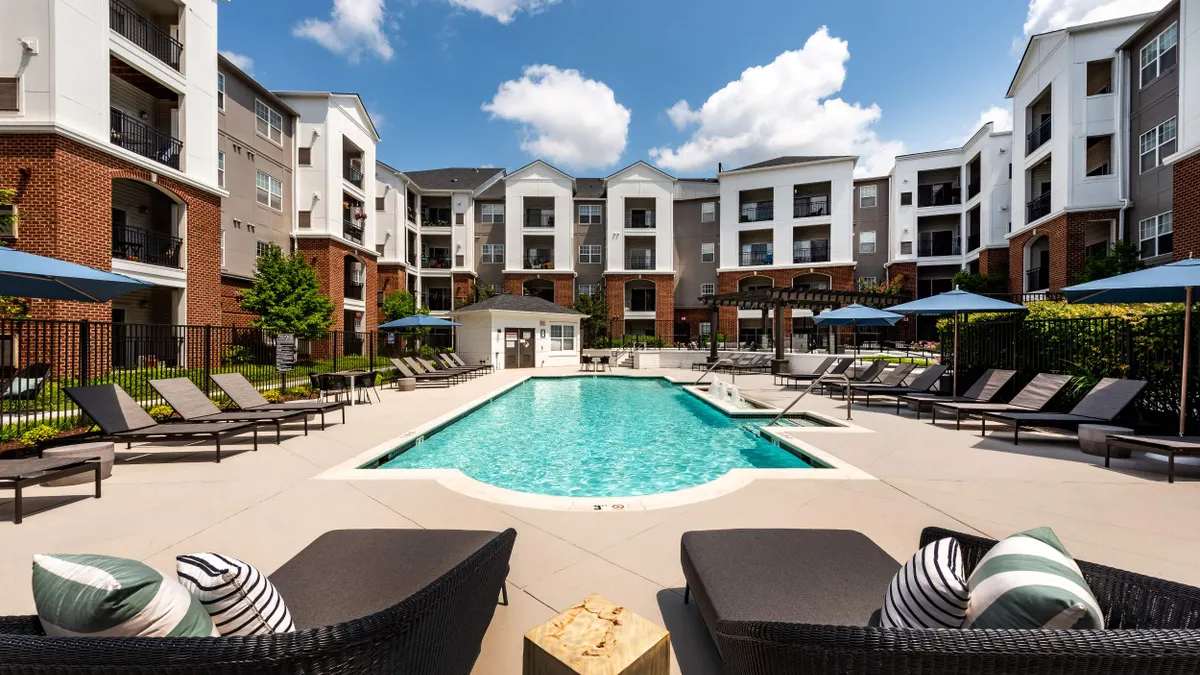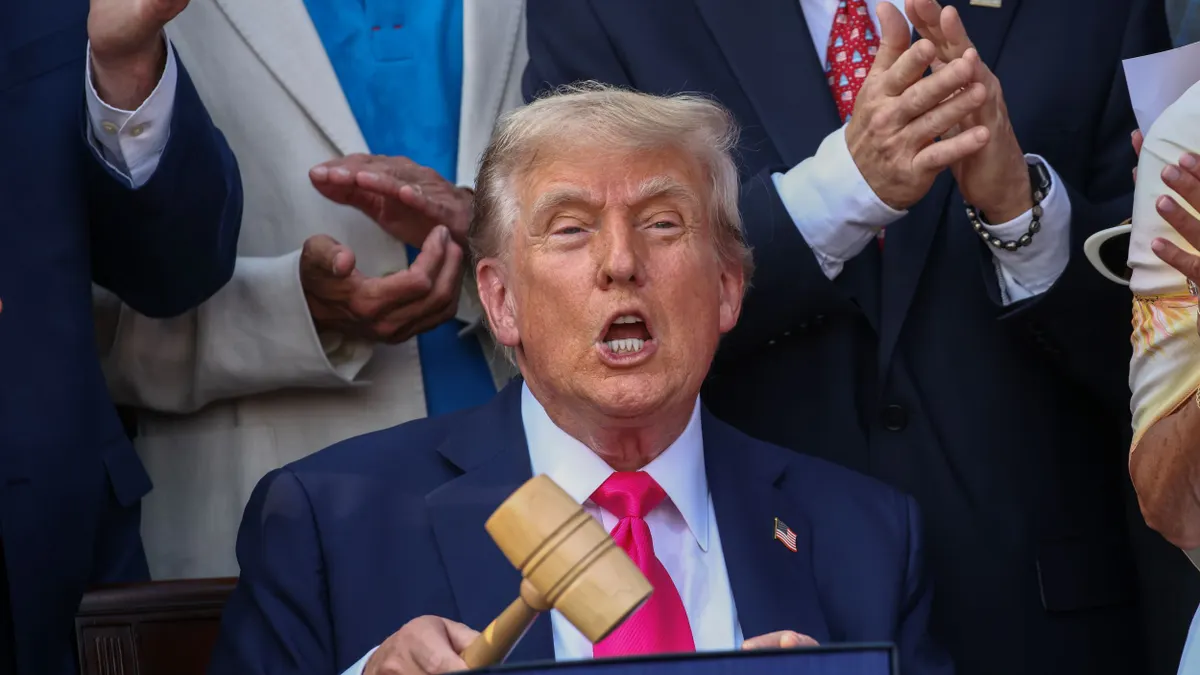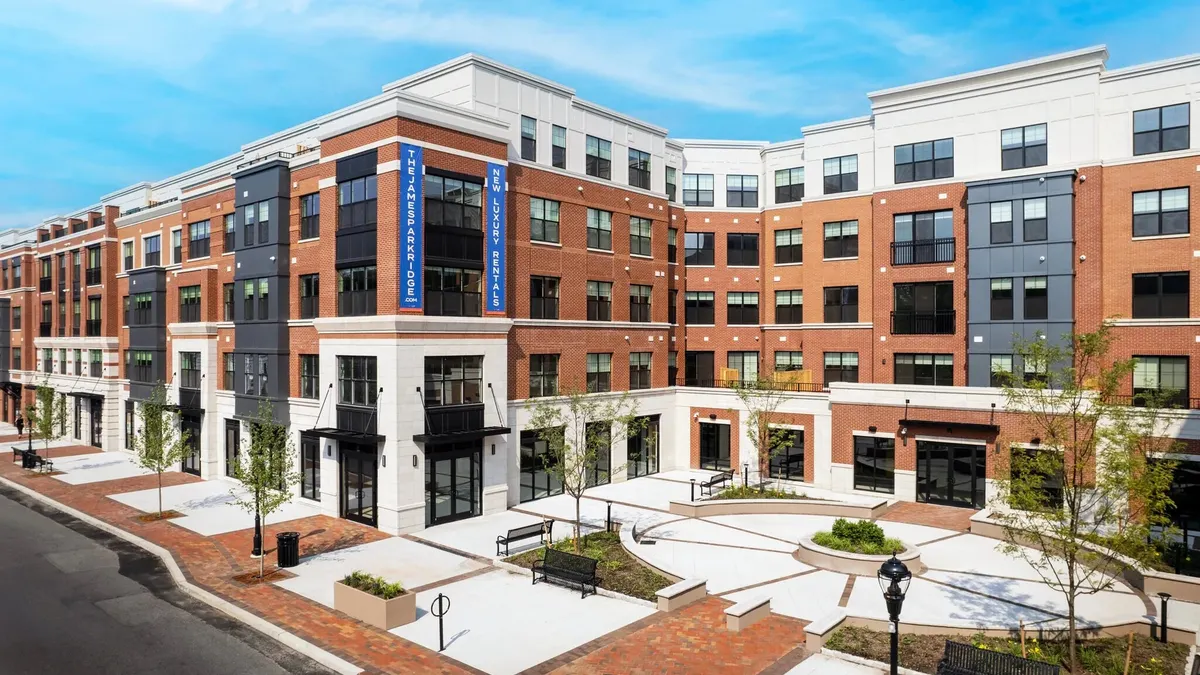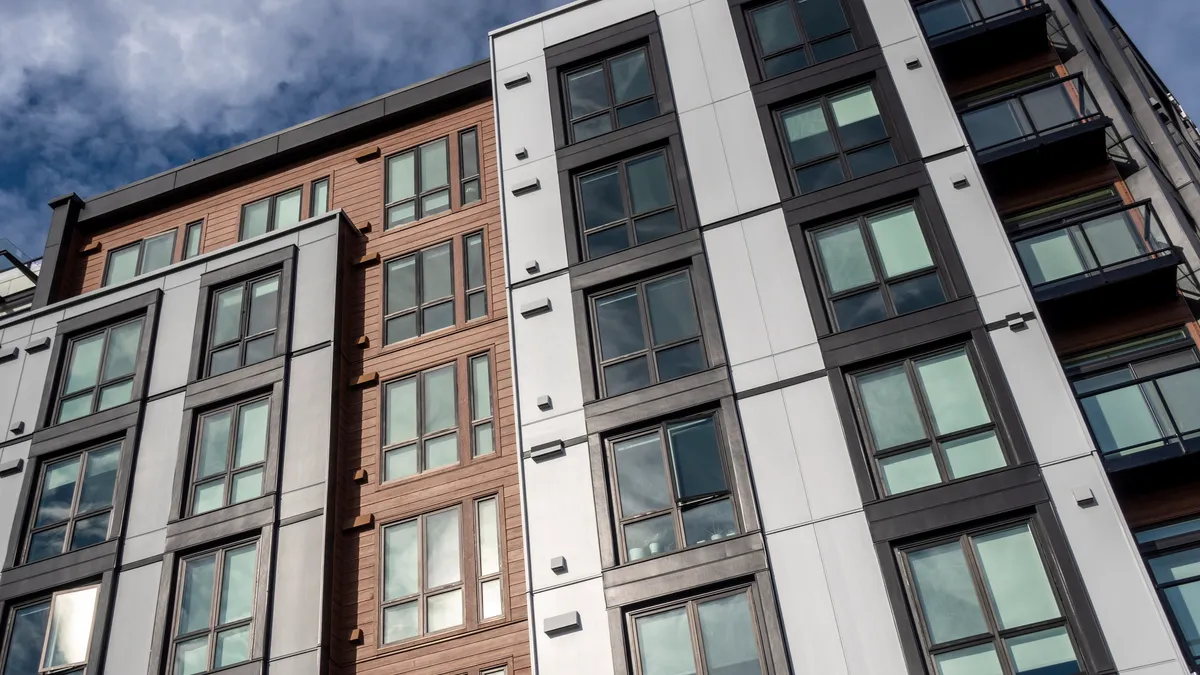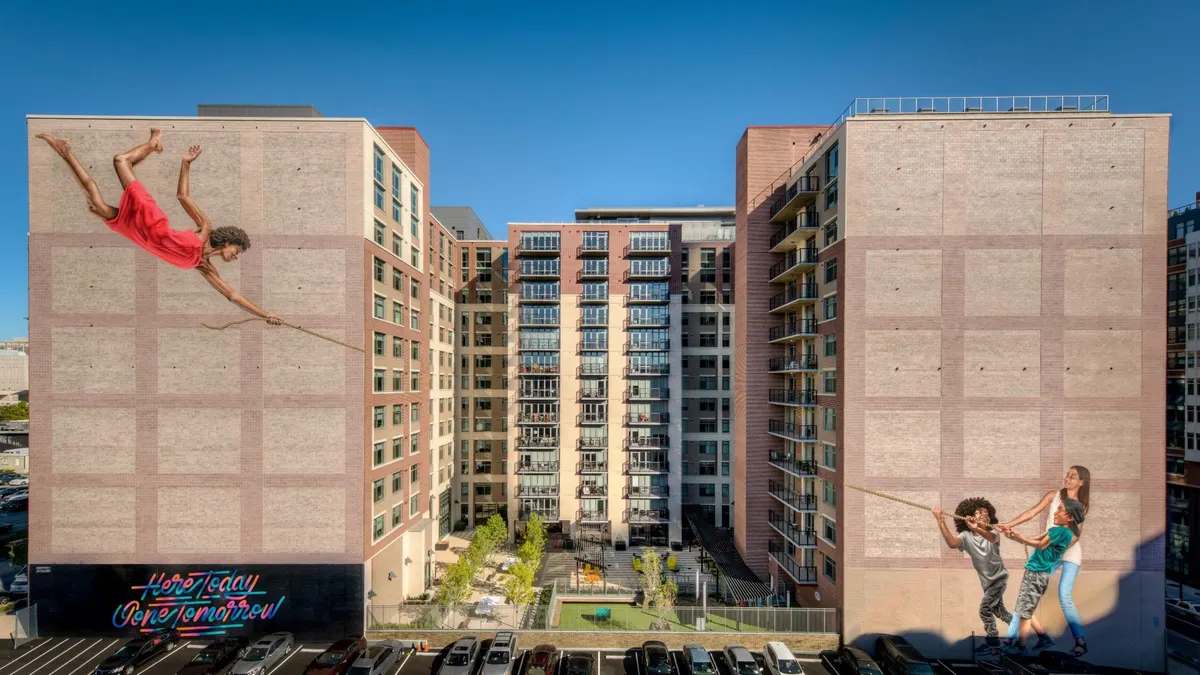Over the weekend, President Donald Trump issued tariffs on the United States’ top three trading partners. By Monday, Trump had postponed the 25% tariffs on Mexico and Canada, but an order placing an additional 10% tariff on imports from China went into effect Tuesday morning.
In response, Beijing announced several economic measures targeting the United States on Tuesday, including a 15% tax on certain types of coal and liquefied natural gas and a 10% tariff on crude oil, agricultural machinery, large-displacement cars and pickup trucks, according to CNN. The measures take effect on Feb. 10.
Trump had been promising tariffs for months, saying that he would enact them by executive order on his first day in office. With that advance warning, the apartment industry has been weighing the effects of a possible trade war, as many panelists noted at last week’s National Multifamily Housing Council Apartment Strategies Conference in Las Vegas.
However, trade wars weren’t the only policy topic discussed at the conference. Mass deportations, tax policy and the future of Fannie Mae and Freddie Mac were also on the agenda.
Tariffs and Immigration
Tariffs and immigration have the potential to stymie new supply in an already challenging environment for apartment construction, according to several conference panelists.
“On the construction side right now, our people are super concerned about tariffs,” said Tommy Brunson, president of development and construction at San Diego-based owner, manager and developer Fairfield Residential. “On the property management side, we're super concerned about immigration.”
Apartment developers rely on products from America’s top trading partners. Kim Betancourt, vice president of economics and multifamily research for Fannie Mae, said China produces doors, windows, ceramic tiles and kitchen cabinets, among other things. Mexico exports lumber and siding, and 30% of softwood lumber comes to the U.S. from Canada.
However, Justin Wolfers, a professor of economics and public policy at The University of Michigan and senior fellow at The Brookings Institution, noted that if tariffs are limited to just a few countries, apartment developers can look elsewhere for products or even get Canadian softwood lumber, for instance, rerouted through another country.
“But, if it's across the board, that's a whole different kettle of fish,” Wolfers said. Trump has also signaled possible tariffs against the European Union, according to The New York Times.
Fannie and Freddie
With Bill Pulte, private equity executive and grandson of home builder William Pulte, nominated to run the Federal Housing Finance Agency, panelists speculated about the future of Fannie Mae and Freddie Mac. Some said they believe the agencies would still have the implicit backing of the government, even if they come out of conservatorship.
Janneke Ratcliffe, vice president of the Urban Institute's Housing Finance Policy Center, said that in a scenario where the agencies are released from conservatorship through an administrative action, there is the potential for more conservative underwriting and less mission-based lending.
Daryl Fairweather, chief economist at Redfin, sees other potential changes if conservatorship ends. “I think if Fannie and Freddie were to get privatized, it would mean higher interest rates without having that federal guarantee,” she said.
Regardless of how the agencies are privatized, Rachel Diller, chief investment officer at Bridge Workforce and Affordable Housing for Salt Lake City, Utah-based owner Bridge Investment Group, thinks it will be a “very, very careful and very planned process.”
“There's going to have to be a lot of capital raised to take the federal government out of their position,” Diller said.
Potential tax changes
Despite volatility around tariffs and immigration, Brunson also sees potential positives from the Trump administration. “There are going to be some negatives that could occur, and some positives that could come out of it, in terms of what this tax package could look like,” he said.
For instance, Brunson said he wonders if any new tax package coming from Congress and the Trump administration might expand the Low Income Housing Tax Credit, Opportunity Zones and the EB-5 Immigrant Investor Program, which allows qualified investors to become eligible for green cards for themselves and their dependent family members.
“There's a lot there that could change for the positive that will potentially offset the negative,” Brunson said. “So I think you just have to expect that change is going to be constant.”
However, there are also concerns that a new tax law could make buying Low-Income Housing Tax Credits less desirable for companies. “Lots of people have optimism that LIHTC will be bundled in with [a new tax law],” Ratcliffe said. “But lower corporate tax rates could make it less efficient.”
Click here to sign up to receive multifamily and apartment news like this article in your inbox every weekday.



